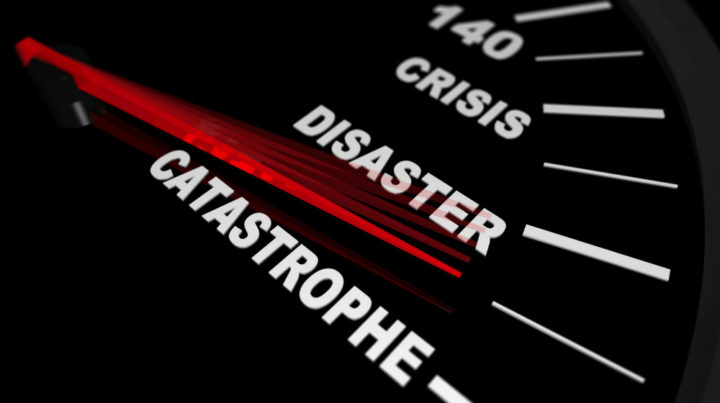14: Preparedness Training to Develop Your Mindset


Podcast: Play in new window | Download
The right kind of preparedness training can help you mentally prepare for dealing with stressful situations? Educate and train yourself ahead of time so you know what to do when an emergency strikes. By preparing in advance, you’ll be better able to physically and mentally deal with stressful situations.
What you need is a plan. Better yet, have a family plan. That’s where preparedness training comes in.
(Note: This episode is the first half of a two-part episode featuring Sam Bradley. You can find the second half here in episode 17.)
Some Things Your Preparedness Training Should Cover
Your preparedness training should be designed to help your family create a workable plan in which everyone knows what to do in an emergency.
Here are some of the things your plan should include.
Where to Meet
You’ll want to know this because your family may not be together when a disaster strikes. Your home could be destroyed or unsafe to return to. It’s a good idea to set up more than one meeting point.
Disaster Kit
Have an accessible disaster kit ready to go. (You might call this your bug-out bag.)
Keep in mind, if your store your emergency kit in your home, it could be useless if your home is destroyed. Having a get-home kit in your car is also a good idea.
Include extra medications. Plan for the needs of the young and elderly. Don’t forget to include the needs of your pets. Did you add extra glasses?
Shoes
A simple piece of preparedness training advice is related to your shoes. Many disasters, such as earthquakes, tornados, etc., strike with little to no warning. So, keep a pair of sturdy shoes near your bed. If you do, you’ll be ready to move should a disaster happen while you’re sleeping.
During non-disaster times, when you wake up, train yourself to get your shoes. You do this by touching them, or at least look at them. Over time, this will burn the locations of your shoes in your mind. That way, when an emergency happens, you’ll head straight for your shoes.
Lights
Not having light at night when you need it stinks. If you have little ones, it can make a bad situation even scarier.
Make sure you have flashlights and extra batteries for them. Consider rechargeable lights or batteries to ensure you’re ready for the long term. Solar-powered lights will work well too.
Water
Water is a critical need, especially for longer-term events. Planning to have water accessible and stored where you can get to it is an essential part of your disaster mindset.
Don’t forget your bathtub can hold a lot of water. Keep it clean and fill it if you can before the disaster happens. Consider using a WaterBob.
Food
You never know how long you might be stuck at home. Be sure to have food. You will either want food and a way to cook it or food that doesn’t require cooking at all.
Preparedness Training for Self-reliance
You have to be prepared to take care of yourself in the event of an emergency.
911 providers may not be there to support you. They may be victims of the disaster too. Learn basic first aid and similar skills so that you can take care of your family and friends.
Grocery stores, gas stations, emergency services, etc., may not be functioning. Help from anyone outside of yourself may be slow to come or non-existent.
During a disaster, when you and your family are hungry, who is really to blame? Take responsibility and begin preparing now.
Start with planning to be on your own for at least one week. Then, continually, within your budget, increase the amount of time you can be self-reliant.
Don’t Forget Preparedness Training for Personal Security
How are you going to protect yourself? As recent disasters have shown, disasters can bring out the worst in people. Some knuckleheads use disasters as an excuse to loot, steal and rob.
Don’t be a victim!
What’s Going On?
It’s hard to know how to respond to an event if you don’t know what’s going on. Have plans for communications and getting information. One thing every prepper should have is a hand-crank NOAA radio for urgent instructions and information.
Social Media
Know the various social media and internet sites that carry useful disaster information and updates. If the internet is still accessible, it may prove to be a valuable resource.
Communications
The cell network may be down. The electricity and phone systems may not be working. Therefore, you’ll need to plan how you’re going to communicate. This will depend on how far apart your family is – if they’re fairly close, you might be able to use good quality walkie-talkies. If they’re more distant, consider ham radio.
Preparedness Training for Evacuation
If you are told to leave, do so. Hurricane Katrina and Harvey show that staying in place to weather a disaster often leads to tragedy.
If you prepare in advance, evacuating should be nothing more than an inconvenience. This article has more detailed instructions on bugging out.
Where Are You Going to Stay?
If your home is not safe, where are you going to stay?
Consider friends and family who may be outside the disaster zone. Perhaps have a storage unit located in another that you pre-stock with emergency supplies. Red Cross shelters may be usable if you have no other options.
Don’t forget, when a disaster happens, hotels fill up. Not only do they fill up with other people impacted by the catastrophe, but they often price gouge.
The Bottom Line on Preparedness Training
Work on preparedness training together and talk about the plan with your family. Familiarize them with it. Once they have a basic understanding of the plan, walk them through it. Over time, pick up the pace so everyone knows what to do during an emergency.
Not everyone deals with stressful situations in the same way. Keep an eye on your family. They should keep an eye on you. If you see someone having issues, help them out in a kind and gentle manner.
Stay safe,

Additional Resources:
2 Comments
Leave a Comment




Join Mind4Survival!
Stay informed by joining the Mind4Survival! 100% Secure! 0% Spam!
Follow Us!
Affiliate Disclosure
Mind4Survival is a free, reader-supported information resource. If you make a purchase through our link, we may, at no cost to you, receive an affiliate commission.



Greatly value your podcast, Brian.
You bring on folks, like yourself , who have the chops AND know how to communicate to an audience.
You mentioned a gentleman named Pete who had a list of H2O filters on his website that I would like to review.
Kindly post his URL.
Godspeed to you, Sir,
Kevin,
Wow! I appreciate the excellent comments. The gentleman I mentioned is Pete Orndorff. He’s a great guy and hopefully a future guest on the podcast. Both his Facebook page and Group go by the title of “21st Century Prepper’s”. The post you’re asking about is from August 13 and is currently the third post down on his page 21st Century Prepper’s Page. His 21st Century Prepper’s Facebook Group is also a great resource.
I hope you enjoy. Shoot me a message on Facebook and let me know what you think.
Take care and stay safe,
Brian